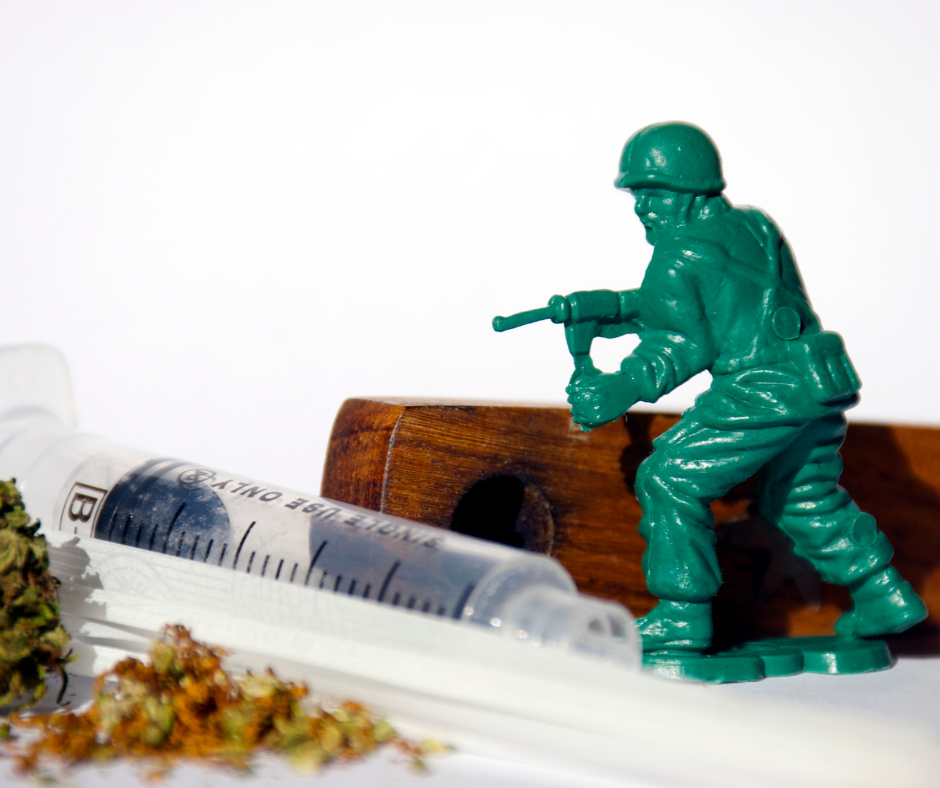Introduction: The War That Never Ends
For decades, governments around the world have waged an unrelenting war on drugs, investing billions into enforcement strategies designed to eliminate drug trafficking and consumption. But has this war truly made communities safer, or has it created more harm than good? The impact of the war on drugs is far more complex than what political rhetoric suggests. It has fundamentally reshaped law enforcement strategies, disproportionately affected marginalized communities, and fueled cycles of poverty and violence.
This article isn’t just about facts—it’s about urgency. If we do not rethink our approach now, generations will continue to suffer under policies that have proven ineffective and, in many cases, destructive. It’s time to take action.
The Heavy Burden on Law Enforcement
1. The Militarization of the Police Force
The war on drugs has transformed law enforcement agencies into militarized units, equipped with high-powered weapons, armored vehicles, and aggressive tactics. The justification? Combatting drug cartels and organized crime. However, in many cases, these military-style operations have led to excessive force, wrongful raids, and a growing mistrust between police and communities.
Consider the countless no-knock raids that have resulted in unnecessary casualties, including innocent civilians and even officers themselves. Instead of strengthening law enforcement’s ability to serve and protect, these strategies have created an “us versus them” mentality between police and the very people they are meant to protect.
2. Overcrowded Prisons & Broken Careers
Law enforcement officers often find themselves caught in a frustrating cycle—arresting the same individuals over and over for minor drug offenses. Instead of focusing on major traffickers, many officers are forced to prioritize low-level arrests to meet quotas and secure funding.
The result? Overcrowded prisons filled with non-violent drug offenders, many of whom could have benefited from rehabilitation rather than incarceration. This not only drains law enforcement resources but also demoralizes officers who see firsthand the failure of these policies.
Communities in Crisis: The Unseen Victims of the Drug War
1. Families Torn Apart
When a father, mother, or young adult is incarcerated for a non-violent drug offense, families are left shattered. Children grow up without parents, economic stability is destroyed, and entire communities suffer. The war on drugs has disproportionately targeted low-income and minority neighborhoods, perpetuating cycles of poverty, crime, and generational trauma.
Instead of investing in education, rehabilitation, and economic opportunities, governments have poured money into mass incarceration—leading to higher crime rates, not lower ones.
2. The Rise of Underground Markets & Gang Violence
Prohibition has historically given rise to black markets, and the drug trade is no different. The criminalization of substances has not eliminated demand—it has merely pushed it into the shadows. This underground economy is controlled by violent cartels and gangs, leading to deadly turf wars, increased homicide rates, and an environment where law-abiding citizens are caught in the crossfire.
Moreover, because of the illicit nature of the drug trade, there is no regulation. Dangerous substances are often mixed with lethal chemicals, leading to overdoses and unnecessary deaths. Had these substances been regulated, lives could have been saved through proper medical supervision and education.
The Economic Toll: A Failing System That Costs Billions
The financial burden of the war on drugs is staggering. Billions of taxpayer dollars are spent annually on law enforcement, incarceration, and interdiction efforts. Yet, studies show that this investment has done little to curb drug addiction or trafficking.
Imagine if even a fraction of these funds were redirected toward addiction treatment, mental health services, and community development programs. Instead of punishing individuals for addiction—a medical condition—we could be offering them a path to recovery and reintegration into society.
Rethinking the War on Drugs: What Needs to Change?
It’s time to ask the hard questions:
- Are we truly winning this war, or are we simply repeating the same failed strategies?
- How many more families must be destroyed before we realize incarceration is not the answer?
- How can we reform policies to protect our communities without criminalizing vulnerable individuals?
1. Decriminalization & Rehabilitation Over Punishment
Countries like Portugal have demonstrated that decriminalizing drug use while investing in rehabilitation programs leads to lower addiction rates and reduced crime. Instead of treating drug users as criminals, we should treat them as individuals in need of help.
2. Law Enforcement Reform & Community Trust Building
We must shift from militarized policing to community-oriented policing. Law enforcement should work alongside communities rather than against them. This means ending aggressive drug raids, focusing on violent criminals rather than minor offenders, and promoting rehabilitation over incarceration.
3. Economic Investment in At-Risk Communities
Instead of criminalizing poverty, governments must invest in job creation, education, and youth development programs. Providing people with opportunities is far more effective than punishing them for turning to illicit economies out of desperation.
Conclusion: A Call to Action
The war on drugs has failed—this is an undeniable reality. It has placed an unbearable strain on law enforcement, torn apart families, and fueled violence rather than stopping it. But failure does not mean we are out of options. We have the power to change course.
If we do not act now, we will be condemning future generations to repeat these same mistakes. We must demand policy reform, support rehabilitation over incarceration, and push for community-driven solutions.
The time for change is now. The question is—will we take action before it’s too late?






